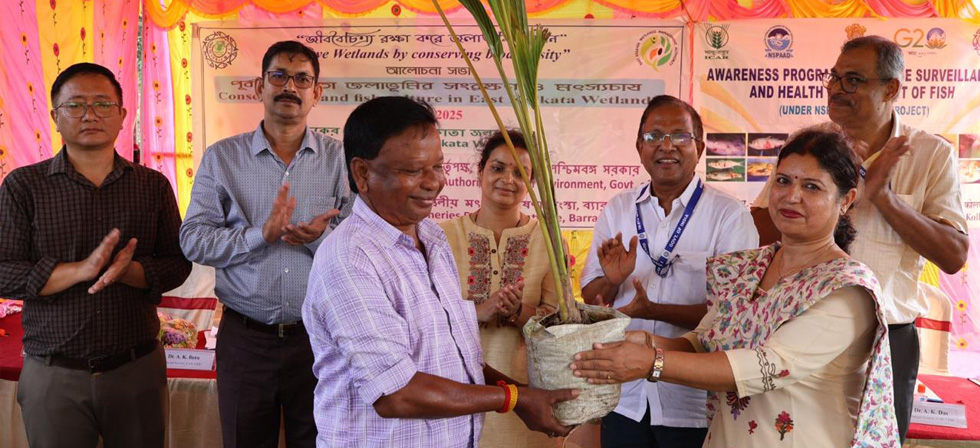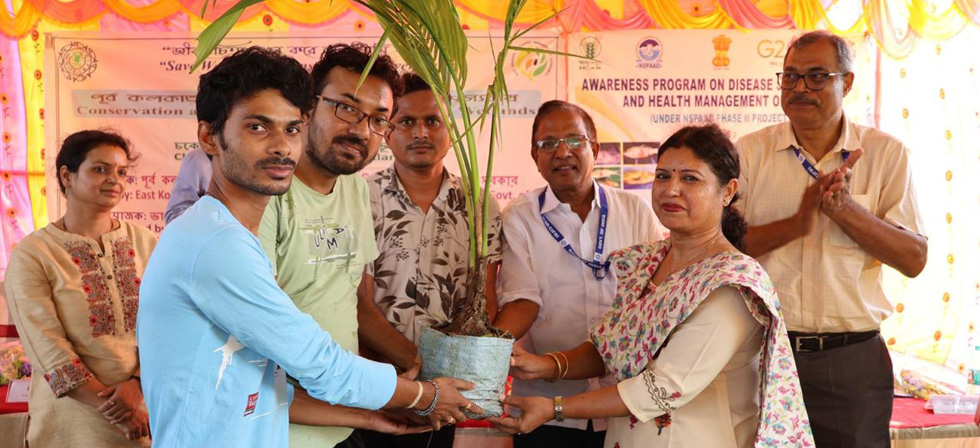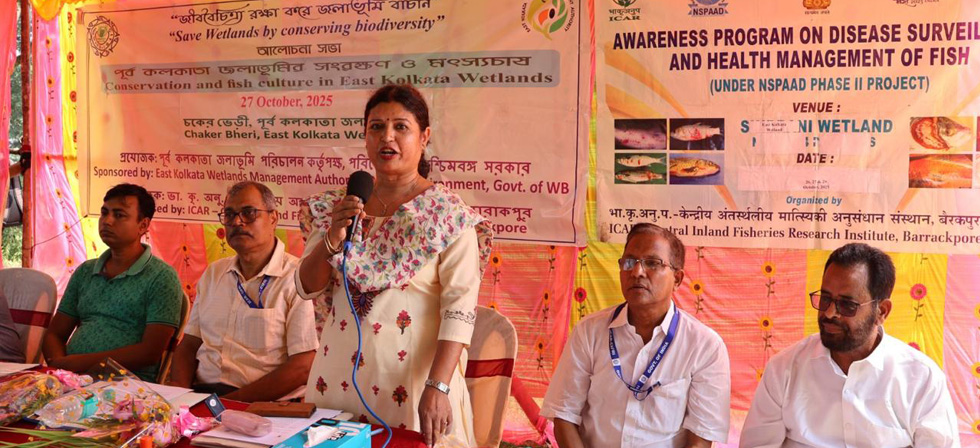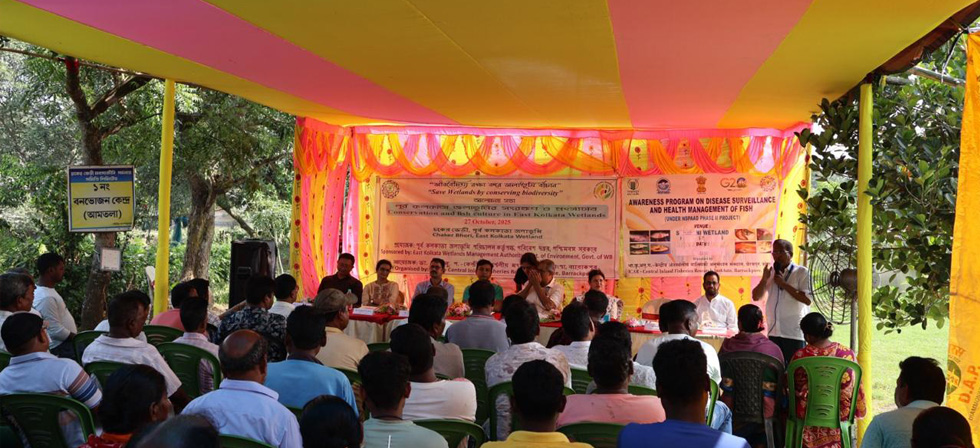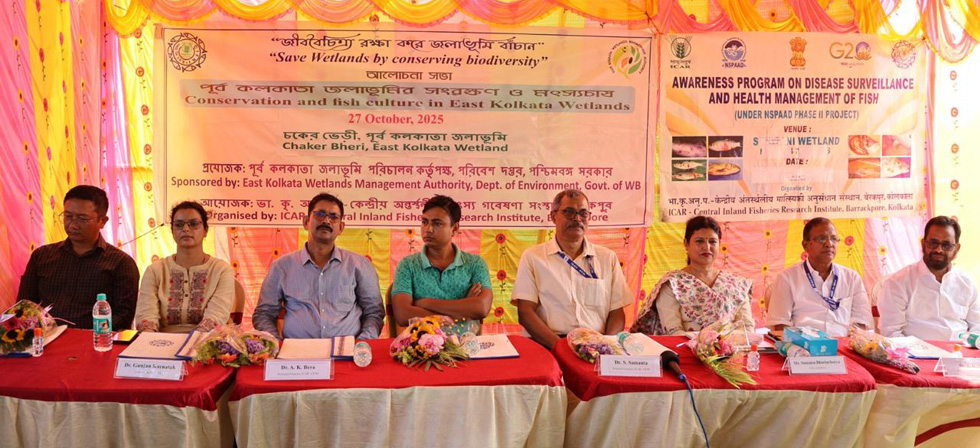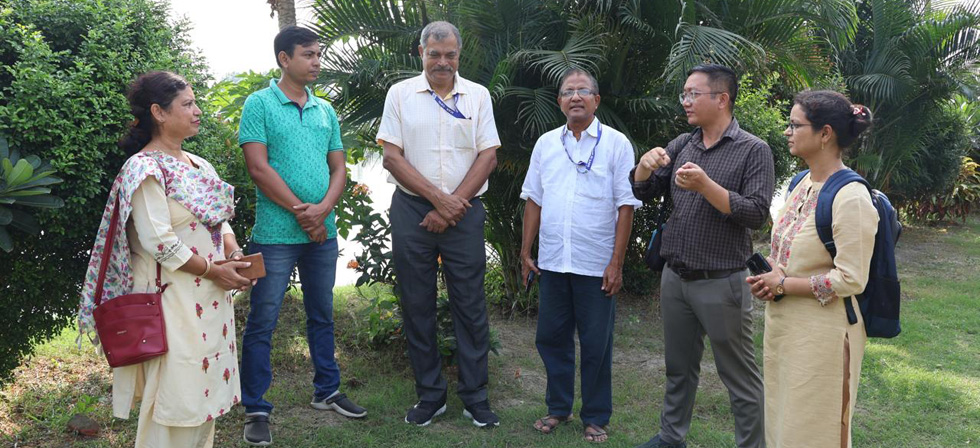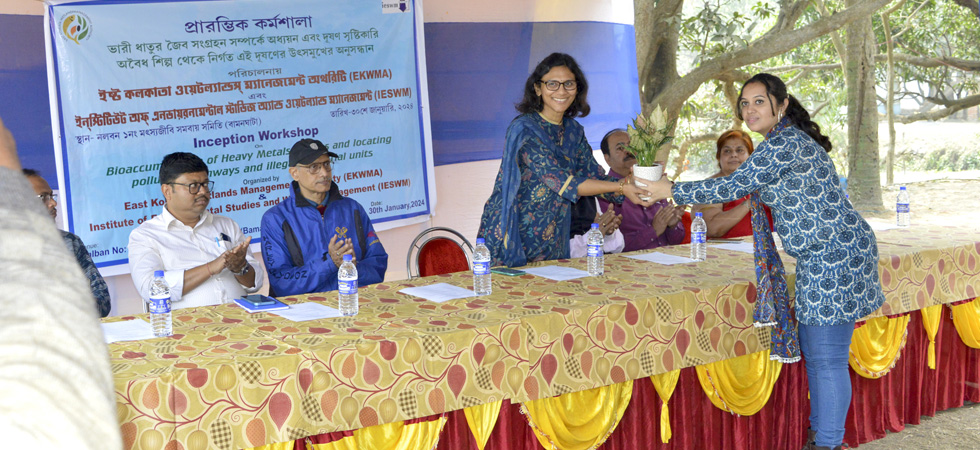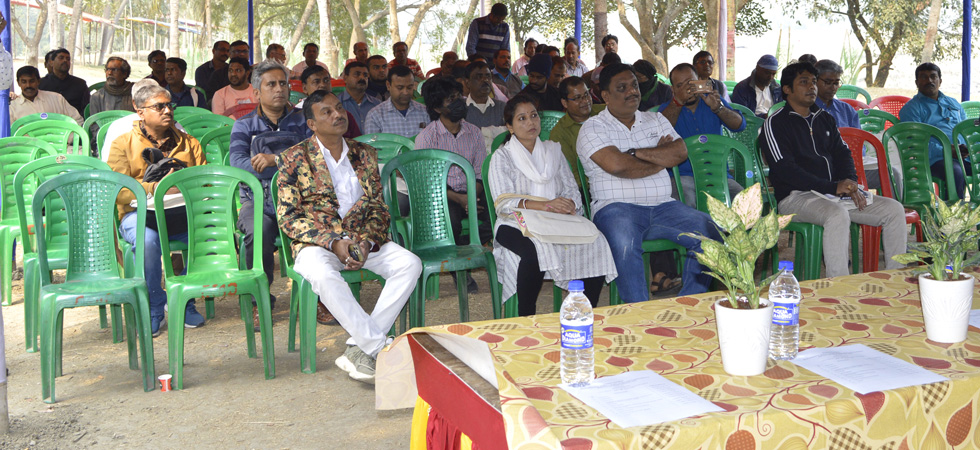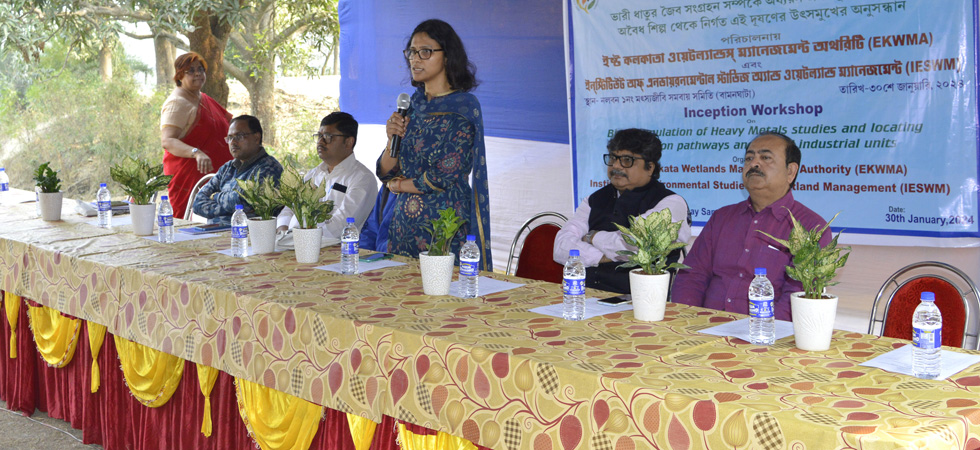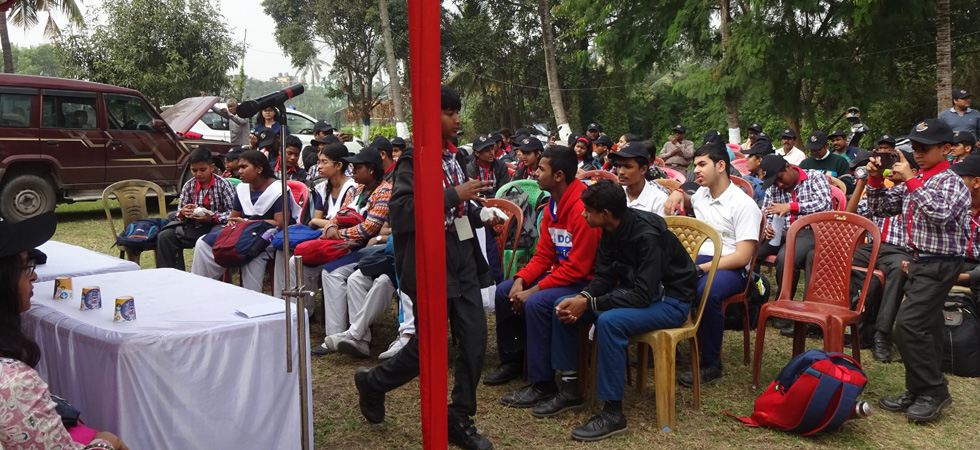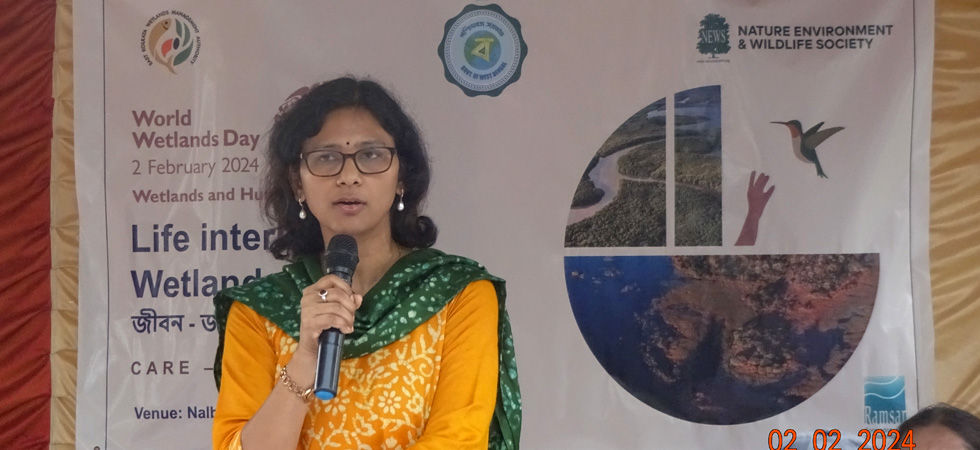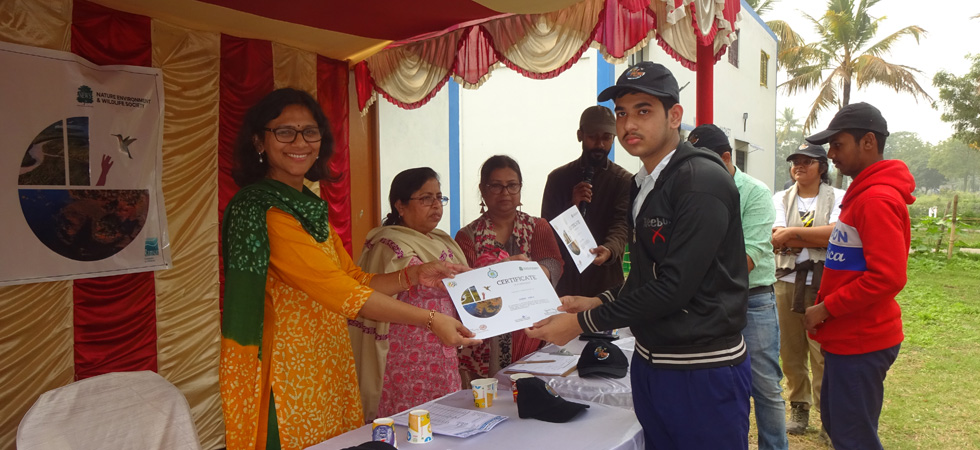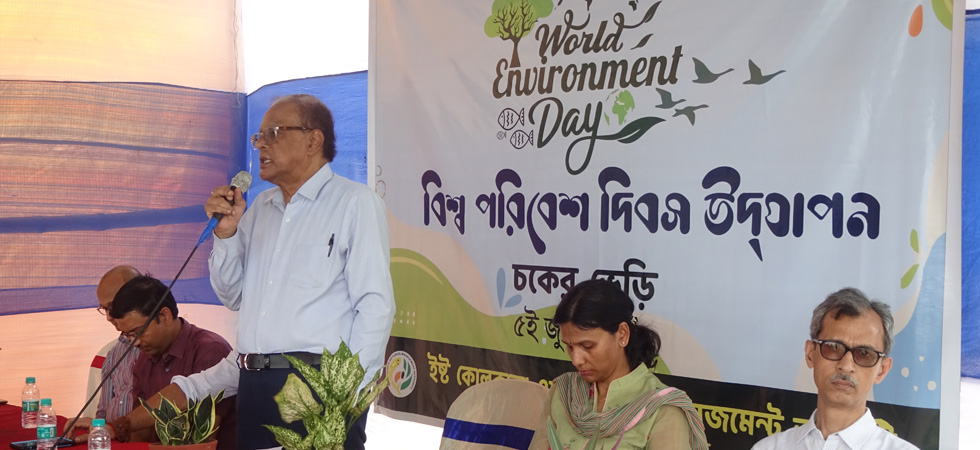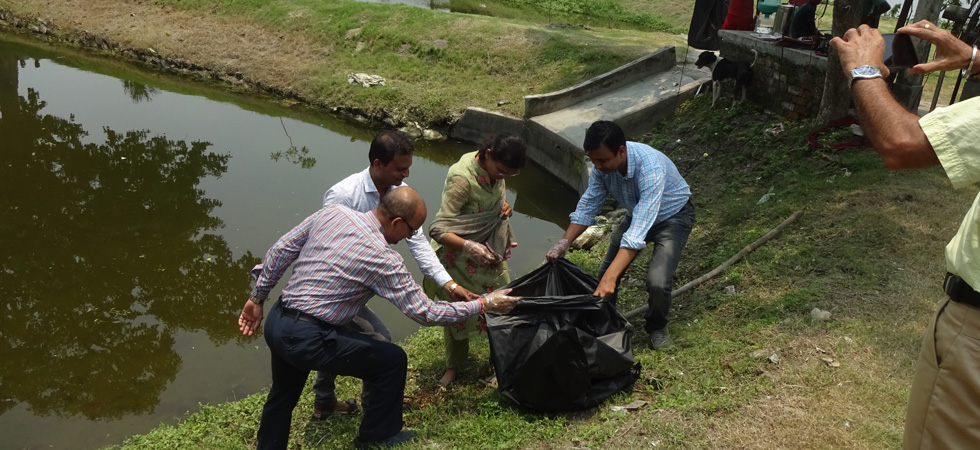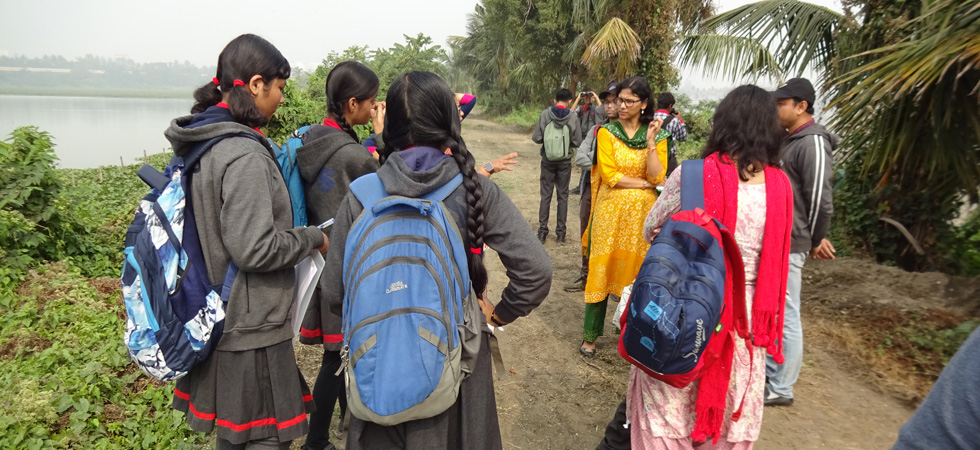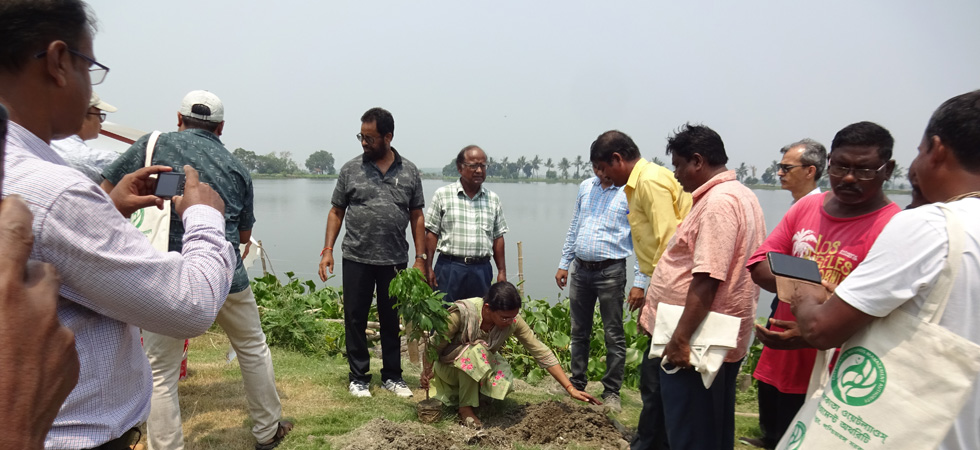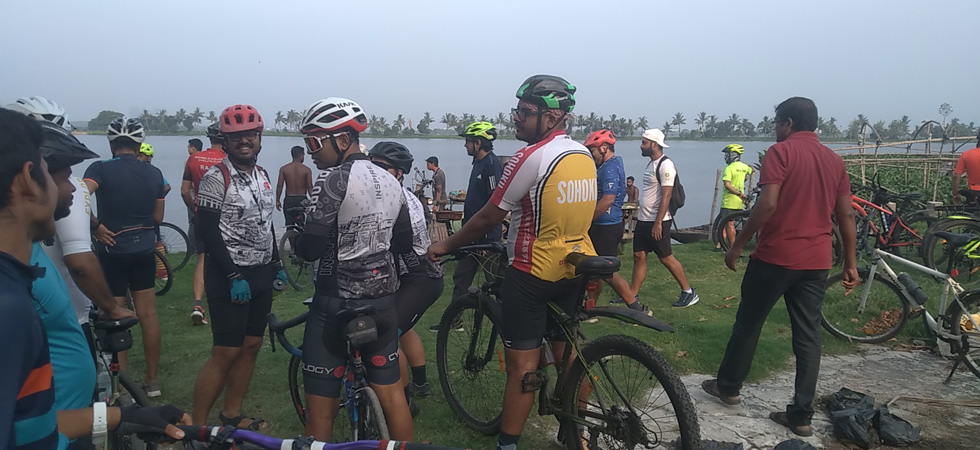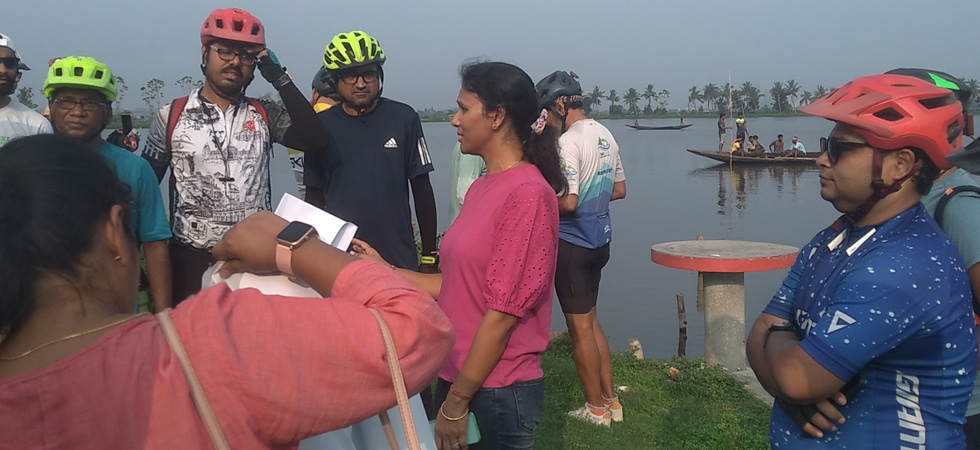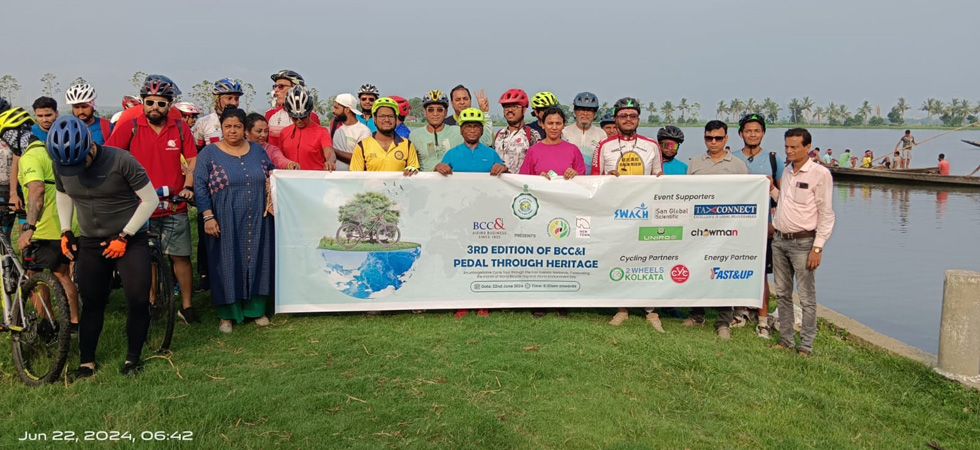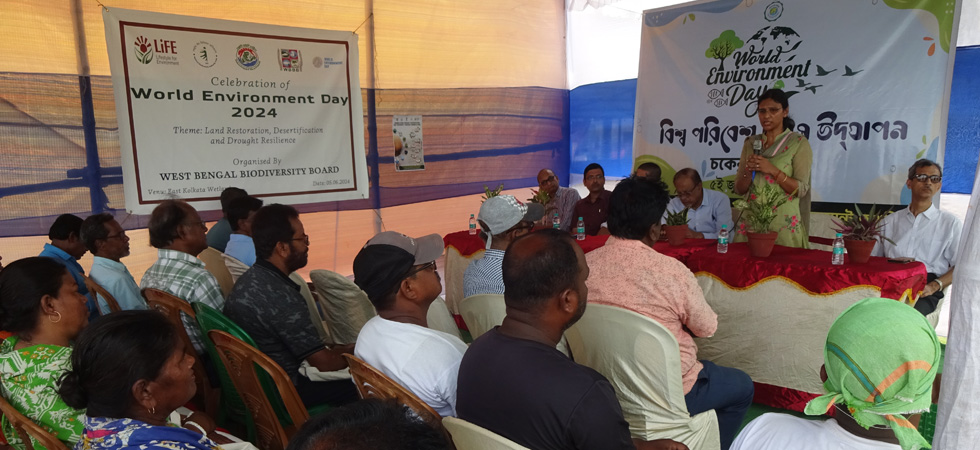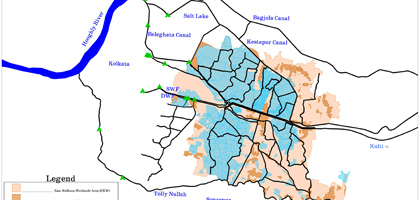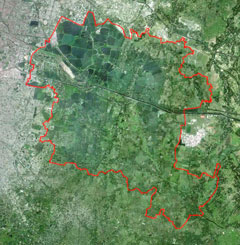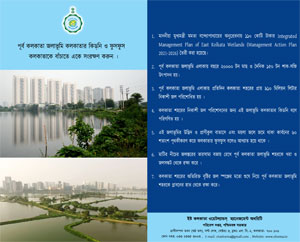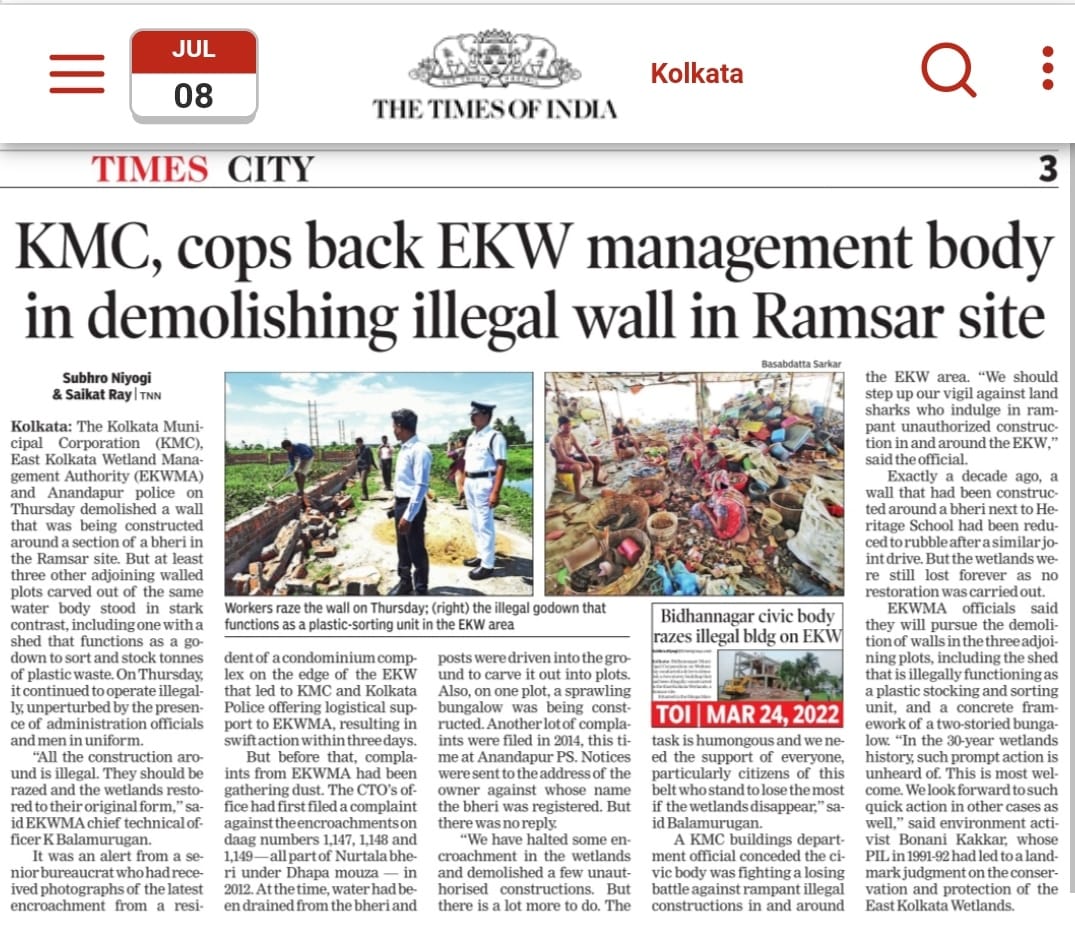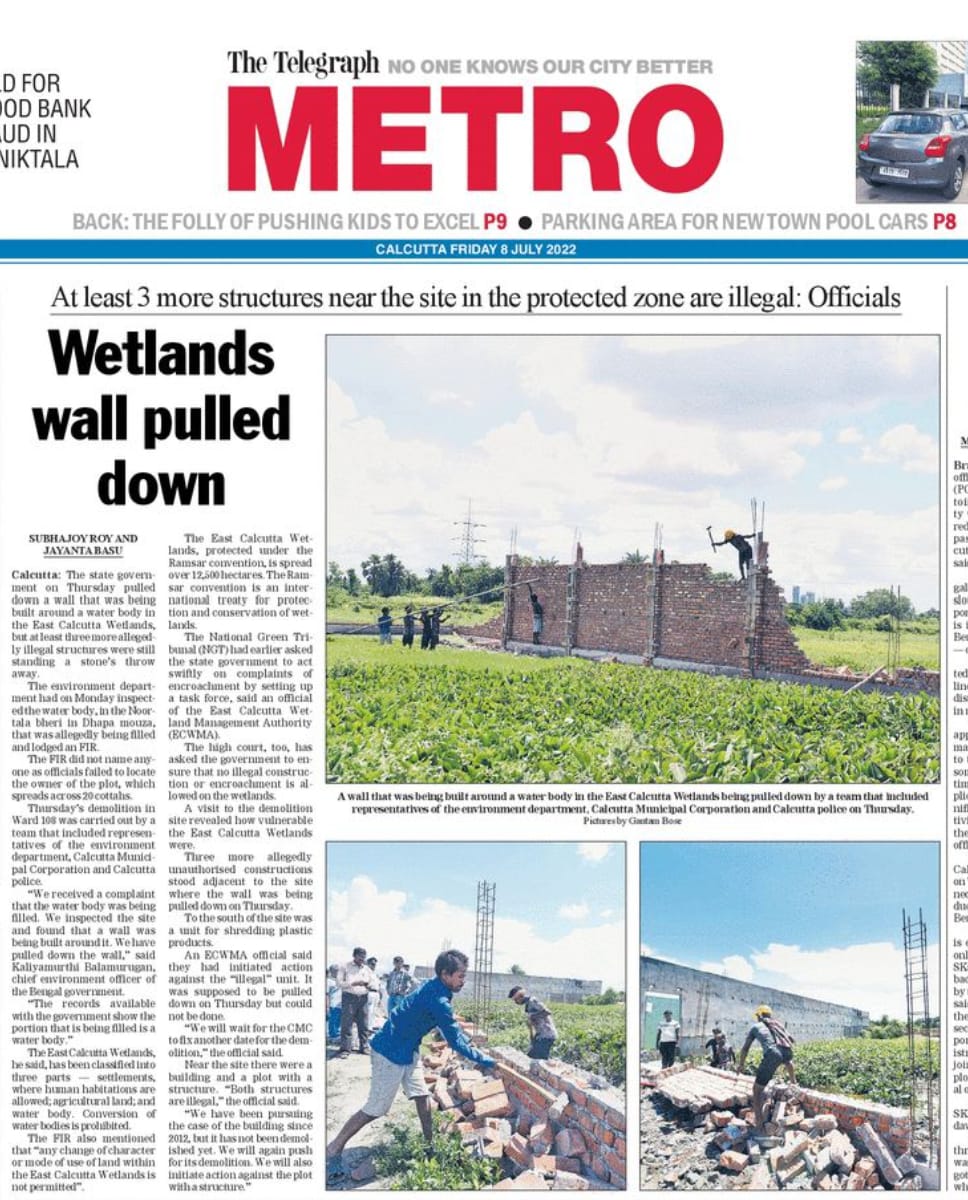

Home
The East Kolkata Wetlands (EKW), located on the eastern fringes of Kolkata city bordering the Salt Lake township on the one hand and the new township at Rajarhat on the other, forms one of the largest assemblages of sewage fed fish ponds. Situated between 22°27’00”N and 88°27’00”E the wetlands spread over an area of 12,500 hectare (Ha). It is comprised of nearly 254 sewage fed fisheries distributed across the districts of South and North 24 Parganas covering a total of 37 Mouzas (30 full and 7 part). Besides, there are small agricultural plots and solid waste farms and some built up areas also.
The EKW nurtures the world’s largest wastewater fed aqua culture system. Sewerage that is sent to the wetlands are subjected to solar purification followed by natural oxidation by which the water become conducive for algal and plankton growth which are the primary feed of fishes. The goods and services provided by the EKW include, in addition to fisheries, a very cheap, efficient and eco-friendly system of solid waste and sewer treatment system for the city of Kolkata, habitat for waterfowl and home for a large number of flora and fauna. On 19th August, 2002 the EKW was included in the Ramsar list of ‘Wetlands of International Importance’. However, because of increasing pressure of urbanization, change in the quality and quantity of the solid waste and sewer, as also human neglect, this site is under threat from various directions.
The East Kolkata Wetlands (Conservation and Management) Act, 2006 represents an important landmark as it paved way for establishment of the East Kolkata Wetlands Management Authority (EKWMA) for conservation and management of the EKW. The EKWMA was constituted under Section 3 of the Act, 2006.
As per the East Kolkata Wetlands (Conservation and Management) (Amendment) Act, 2017 notified by the State Government vide no. 304-L dated 17.03.2017, the EKWMA was reconstituted. According to the said Amendment Act, 2017, the EKWMA is now a thirteen (13) member body with the Chief Secretary and Secretaries of different Departments of State Govt. as well as four experts each in the areas of wetland ecology, hydrology, fisheries and socio-economics under the chairmanship of Minister-in Charge, Department of Environment, Government of West Bengal.
Besides the East Kolkata Wetlands (Conservation and Management) Act, 2006 and as amended from time to time and Rules made thereunder, the EKWMA is also guided by the Wetlands (Conservation and Management) Rules, 2017 notified by the Ministry of Environment, Forest and Climate Change, Government of India.
